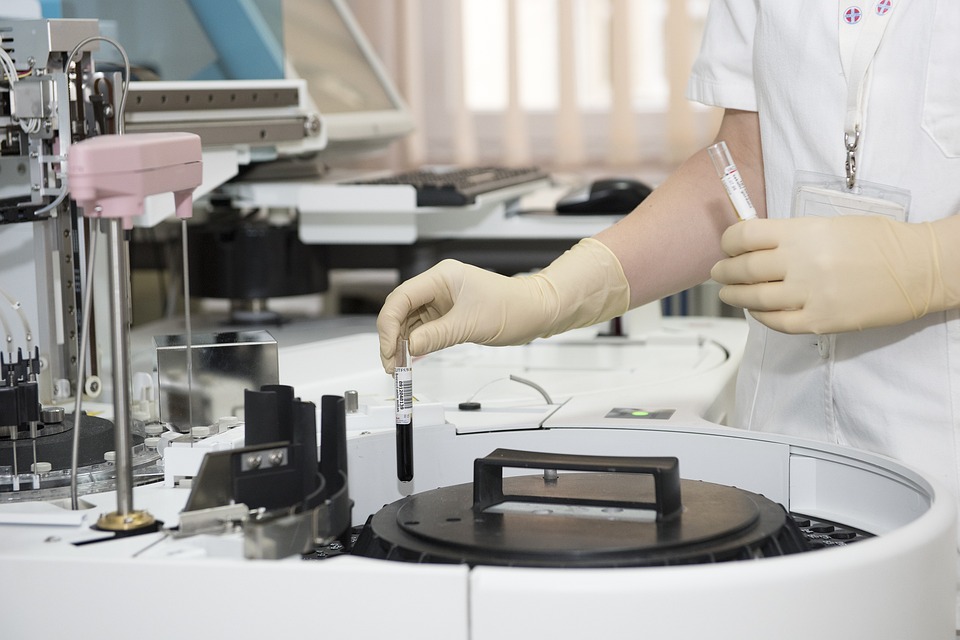
The decongestion of the tumor microenvironment using nanoparticles containing the antihistamine substance tranilast enhances the action of anticancer therapy for the treatment of breast cancer.
In new research published recently in the internationally acclaimed scientific journal Nature Communications, a separate approach is proposed as part of the effort to treat the condition of triple-negative breast cancer. Triple negative breast cancer is an aggressive form of cancer that makes up 10-20% of breast cancer cases. These tumors are usually more aggressive and have a worse prognosis than other types of breast cancer, resulting in an increased rate of metastasis.
Taking advantage of the new perspectives offered by nanotechnology in pharmaceutical technology, scientists at the University of Cyprus have prepared polymeric nanoparticles for the designed transport of the antihistamine substance tranilast (Tranilast) to the cancerous tumor. Studies conducted at the cancer Biophysics Laboratory of the University of Cyprus, led by Associate Professor Rose Stylianopoulos of the Department of Mechanical Engineering and construction, have shown that tranilast suppresses the production of building blocks of the tumor microenvironment, such as collagen and hyaluronic acid. These elements cause the formation of a dense cancerous mass that prevents the anti-cancer therapy drug from reaching the cancer cells in quantities sufficient to eliminate them. Tranilast reduces the amount of collagen and hyaluronic acid as a result of which the density of the tumor decreases, the tumor softens and opens passages for the effective transfer of anti-cancer treatment. The results of the study demonstrate that tranilast-containing nanoparticles are able to decongest the tumor microenvironment and enhance the anticancer activity of nanotherapy and immunotherapy in preclinical models of triple-negative breast cancer.
The findings of the study titled “Polymeric micelles effectively reprogram the tumor microenvironment to potentiate nano-immunotherapy in mouse breast cancer models” are considered significant and are expected to improve conventional treatment against triple-negative breast cancer.
The research team of the cancer Biophysics Laboratory has demonstrated how the administration of induced nanotherapy in combination with immunotherapy to the cancer tumors that originally received the tranilast nanoparticles can lead to a complete cure of the tumor and the creation of immune memory. That is, the immune system of the preclinical models recognized the cancer cells and prevented the recurrence of the tumor.
Additionally, the use of ultrasound elastography, a non-invasive imaging method for measuring the hardness of cancerous tissue, was evaluated for the first time. Applying the Elastography technique to cancer tissue, the researchers observed a strong correlation between how hard or soft the tumor is and the effectiveness of the treatment. The softer tumors were the ones that responded better to cancer treatment, which proves the usefulness of the method for predicting cancer treatment.
The tranilast nanoparticles were developed in collaboration with the Laboratory of cancer Biophysics of the University of Cyprus with the research team of Associate Professor Oresio Cabral of the University of Tokyo. The first authors in the study are researchers from the University of Cyprus, Dr. Myrophora Panagi and Dr. Photios Drunkris.
The Laboratory of cancer biophysics of the University of Cyprus in collaboration with the Bank of Cyprus Oncology Center and the German Oncology Center is working to transfer the know-how of the ultrasound elastography method to cancer patients.
The research received funding from the European Research Council and the Cyprus research and Innovation Foundation.







Leave A Comment